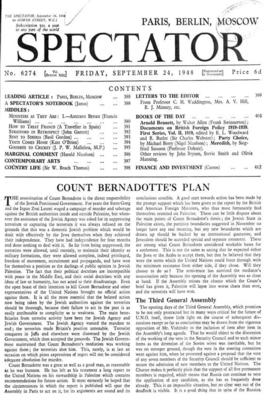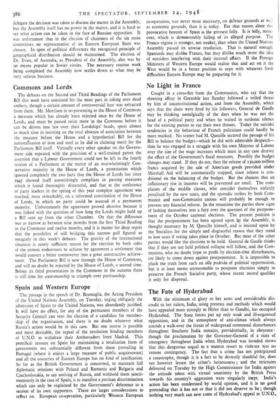The Third General Assembly
The opening days of the Third General Assembly, which promises to be not only protracted but in many ways critical for the future of U.N.O. itself, threw little light on the course of subsequent dis- cussions except so far as conclusions may be drawn from the vigorous opposition of Mr. Vishinsky to the inclusion of item after item in the Assembly's long agenda. That he would object to the discussion of the working of the veto in the Security Council and to such minor items as the detention of the Soviet wives was inevitable, but he was on stronger ground, though the vote in the steering committee went against him, when he protested against a proposal that the vote of any seven members of the Security Council should be sufficient to secure the admission of new members to the United Nations. The Charter makes it perfectly plain that the support of all five permanent members is required, which means that Russia can continue to veto the application of any candidate, as she has so frequently done already. This is an impossible situation, but no clear way out of the deadlock is visible. It is a good thing that in spite of the Russian.
delegate the decision was taken to discuss the matter in the Assembly, but the Assembly itself has no power in the matter, and it is hard to see what action can be taken in the face of Russian opposition. It was unfortunate that in the election of chairmen of the six main committees no representative of an Eastern European State' was chosen. In spite of political differences the, recognised principle of geographical distribution should be maintained. The election of Dr. Evatt, of Australia, as President of the Assembly, also was by no means popular in Soviet circles. The necessary routine work being completed the Assembly now settles down to what may be very serious business.



































